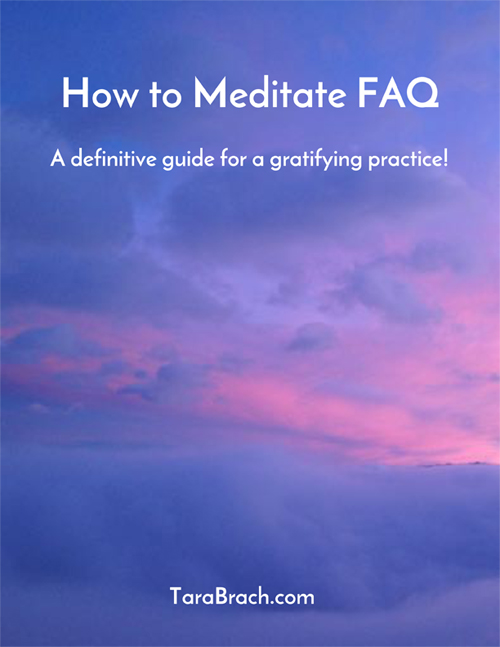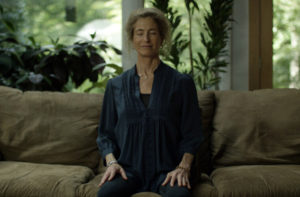After graduating from college, I moved into an ashram, a spiritual community, and enthusiastically devoted myself to the lifestyle for almost twelve years. I felt I had found a path through which I could purify myself and transcend the imperfections of my ego—the self and its strategies. We were required to awaken every day at three-thirty A.M., take a cold shower, and then from four until six-thirty do a sadhana (spiritual discipline) of yoga, meditation, chanting and prayer. By breakfast time I often felt as if I were floating in a glowing, loving, blissful state. I was at one with the loving awareness I call the Beloved and experienced this to be my own deepest essence. I didn’t feel bad or good about myself, I just felt good.
By the end of breakfast, or a bit later in the morning, my habitual thoughts and behaviors would start creeping in again, and those ever-recurring feelings of insecurity and selfishness would let me know I was falling short. Unless I found the time for more yoga and meditation, I would often find myself feeling once again like my familiar small-minded, not-okay self. Then I’d go to bed, wake up and start over again.
While I touched genuine peace and openheartedness, my inner critic continued to assess my level of purity. I mistrusted myself for the ways I would pretend to be positive when underneath I felt lonely or afraid. While I loved the yoga and meditation practices, I was embarrassed by my need to impress others with the strength of my practice. I wanted others to see me as a deep meditator and devoted yogi, a person who served her world with care and generosity. Meanwhile, I judged other people for being slack in their discipline, and judged myself for being so judgmental. Even in the midst of community, I often felt lonely and alone.
I had the idea that if I really applied myself, it would take eight to ten years to release all my self-absorption and be wise and free. Periodically I would consult teachers I admired from various other spiritual traditions: “So, how am I doing? What else can I do?” Invariably, they would respond, “Just relax.” I wasn’t exactly sure what they meant, but I certainly didn’t think it could be “just relax.” How could they mean that? I wasn’t “there” yet.
Chogyam Trungpa, a contemporary Tibetan Buddhist teacher, writes, “The problem is that ego can convert anything to its own use, even spirituality.” What I brought to my spiritual path included all my needs to be admired, all my insecurities about not being good enough, all my tendencies to judge my inner and outer world. The playing field was larger than my earlier pursuits, but the game was still the same: striving to be a different and better person.
In retrospect, it is no surprise that my self-doubts were transferred intact into my spiritual life. Those who feel plagued by not being good enough are often drawn to idealistic worldviews that offer the possibility of purifying and transcending a flawed nature. This quest for perfection is based in the assumption that we must change ourselves to belong. We may listen longingly to the message that wholeness and goodness have always been our essence, yet still feel like outsiders, uninvited guests at the feast of life.
What has helped me the most since then is to remember that imperfection is not our personal problem—it is a natural part of existing. We all get caught in wants and fears, we all act unconsciously, we all get diseased and deteriorate. Yet, when we relax about imperfection, we no longer lose our life moments in the pursuit of being different and in the fear of what is wrong.
The renowned seventh-century Zen master Seng-tsan taught that true freedom is being “without anxiety about imperfection.” This means accepting our human existence and all of life as it is.
So, while the trance of feeling separate and unworthy is an inherent part of our conditioning as humans, the good news is that so too is our capacity to awaken. We free ourselves from the prison of trance as we stop the war against ourselves and, instead, learn to relate to our lives with a wise and compassionate heart. When we learn to cultivate and embrace our lives with what I call Radical Acceptance—accepting all the different and varied parts of ourselves—we begin to rediscover the garden: a forgotten but cherished sense of wholeness, wakefulness, and love.
Taken from my book Radical Acceptance 2003
For more information go to: www.tarabrach.com
Photo Credit: Shell Fischer


